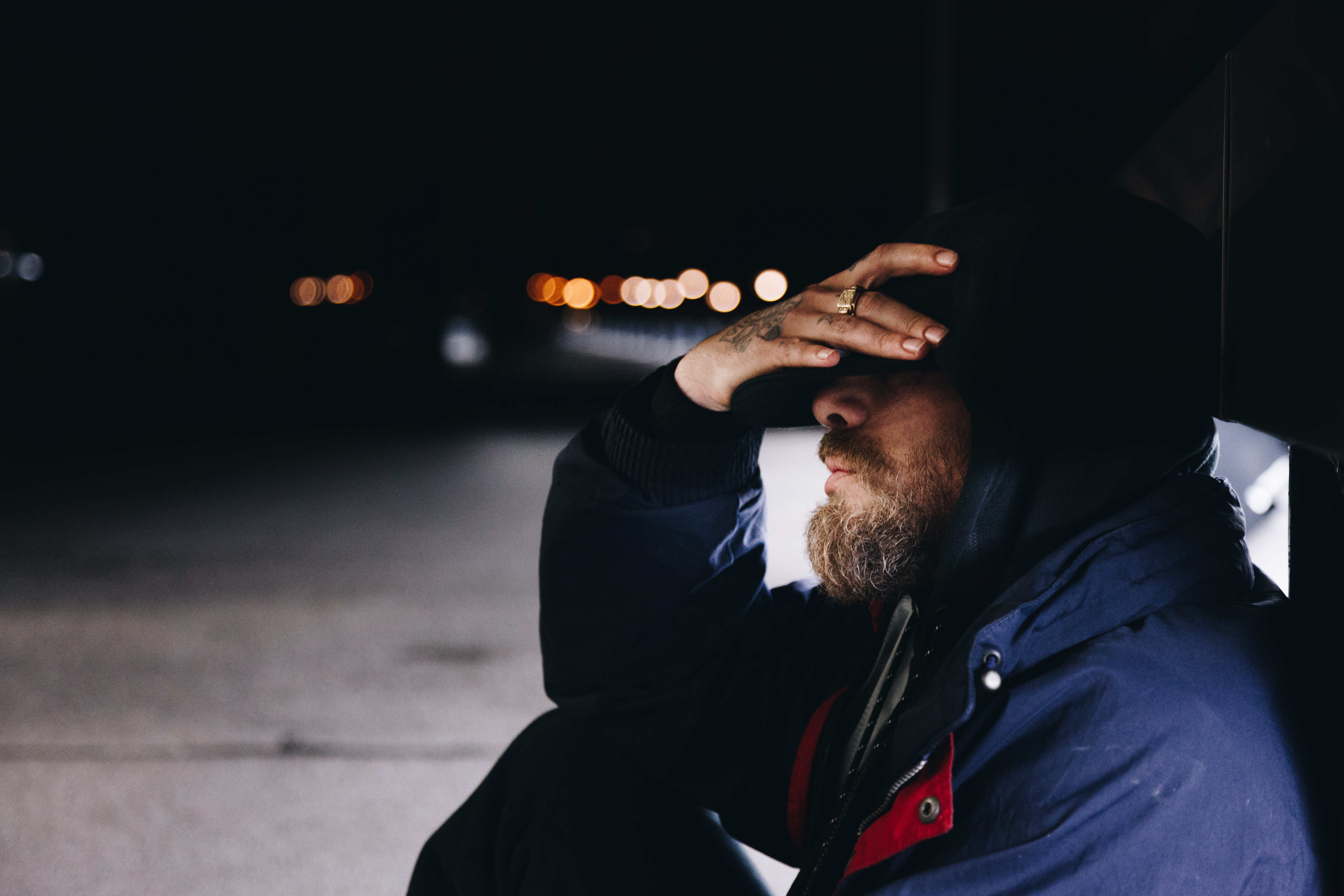In an increasingly cashless society, how can we ensure that Britain’s homeless are still supported financially? One man from Oxford is hoping his new smartphone app can do just that.
Debit cards are set to overtake cash as the most frequently used payment method in the UK later this year. One result is that charities are being forced to rethink their fundraising methods in the face of a more ‘contactless society’. With less spare change in our pockets, Oxford entrepreneur Alex McCallion has set up ‘Greater Change’, a smartphone app which he hopes will help the homeless stay ahead of our spending trends.
The Greater Change co-founder says there were two main inspirations behind his idea. In addition to the need for cashless technology, he also wanted to enable those living on our streets to save for long-term goals – rather than being forced to spend their money on short-term solutions.
Alex claims that, despite the public giving “a significant amount of money” to the homeless, the donations “rarely make a long-term difference” due to the cash seldom being “spent on long-term solutions.”
READ MORE: Here Are The Shocking Figures Behind the UK’s Homelessness Crisis
This focus on the longer-term financial goals, aimed at helping individuals escape homelessness, is hugely important. Everyone has the right to adequate housing – but with much of the change given to those living on the streets going towards more immediate necessities (such as food and drink), the prospect of saving for a sustainable future of housing and employment can seem daunting.
Feedback from one of our users who has reached their fundraising target! We are so proud of their journey and can't wait to see where it takes them. pic.twitter.com/PFdrFuDY1x
— Greater Change (@GreaterChangeUK) June 27, 2018
The scheme is run in partnership with the employment charity Aspire Oxford. Its CEO, Paul Roberts, explains that, although support workers understand how an individual could be supported out of homelessness, they often “don’t have the funds in place to enable somebody to take that next step” and “leave homelessness behind for good.”
After some on-the-ground volunteering and research, Economics and Management graduate Alex devised what he believes is a more holistic smartphone solution, combining cashless technology with direct support for homeless individuals wanting to move off the streets.
Losing the Loose Change

Homeless people in Oxford who sign up to the scheme are given their own QR code, like the kind used for online ticketing.
The code is linked to a restricted fund, similar to fundraising sites such as JustGiving. A caseworker co-manages the account to ensure the money is spent on targets that have been agreed on by the scheme and the individual.
When the QR code is scanned (either through the app or web browser on a smartphone) a page will pop up where you can learn more about the person, their goals, and their story. You can then donate any amount of money to go towards the individual’s aims.
In addition to the code, app users can also search for a specific person by name, or be randomly taken to the page of someone in need.
It’s hoped that this form of donation will help individuals gain the financial and emotional stability to sustain their move back into a home or job.
Video: Greater Change/Youtube
Similar contactless trials have taken place elsewhere in the UK and Europe over the last year. The Rough Sleeping Partnership, an alliance of four charities tackling street homelessness in Bristol, ran two contactless donation stations near local shops. As well as accepting donations, they also gave information about Streetlink, an outreach programme for rough sleepers.
In Hackney, TAP London have been working to provide employment for ten vendors, giving them contactless card readers with which to sell art cards. Two-thirds of the money goes towards providing them with a living wage, while the rest is split between homeless charities.
In 2017, ad agency N=5 ran a trial of the Helping Heart contactless jacket, which allows people to donate €1 by tapping a card reader on the chest of the homeless person’s coat. The money can only be spent on products designated after consultation with the individual’s local shelter.
Homelessness and Human Rights
Image Credit: Pedro Ribeiro Simões/Flickr
The number of rough sleepers has risen for the seventh year in a row, with more than 4,700 people thought to be living on the streets. The right to adequate housing is a basic human right, and it’s protected by the International Covenant on Economic, Social and Cultural Rights, but it’s a difficult balancing act.
While landlords are able to impose eviction on tenants, the state does have an obligation to protect its citizens’ access to the basic necessities of life. The lack of a stable home has a huge impact on our entire lives, affecting the right to a private and family life (Article eight of the Human Rights Convention), which includes the protection of an individual’s physical and psychological integrity.
READ MORE: We Need to Talk About the UK’s Homeless Problem
Spending every night on the streets can cause huge harm to an individual’s well-being, with a proven link between homelessness and poor physical and mental health. Access to healthcare remains a stumbling block for homeless people, who sometimes face poor attitudes from medical staff and often fear being judged.
Our economic, social and cultural rights cover everything from shelter and food to access to healthcare, and it’s vital that everything possible is done to protect those rights for Britain’s homeless.
Speaking to RightsInfo, Alex said that “protecting rights and building something truly useful to the homeless” is the project’s first priority, and it’s hoped that it can be rolled out across the country once grant funding and social investment is in place.
You can find out more about the Greater Change project, HERE.








